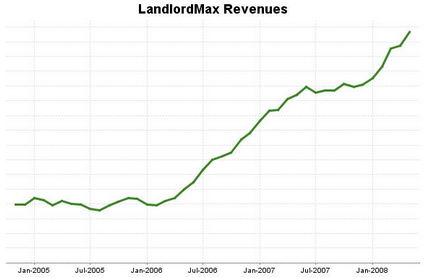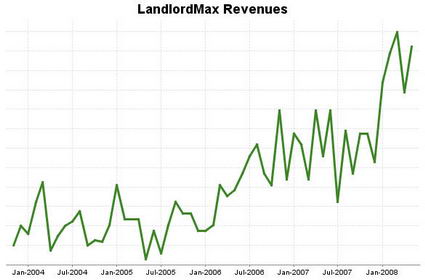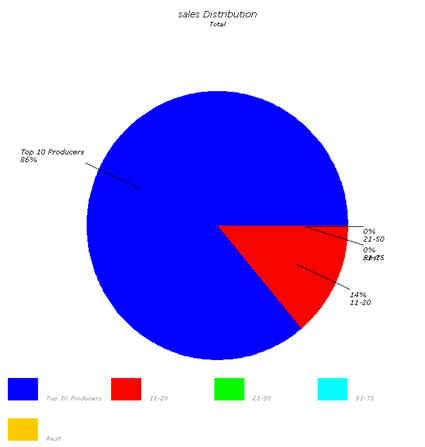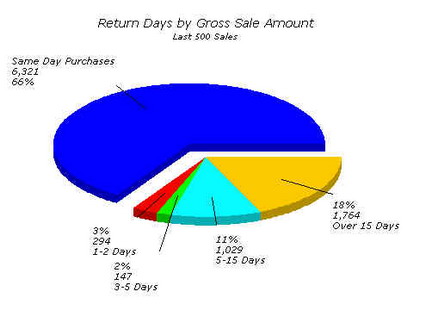The Secret to Success Can be Summed up in One Word: Perseverance!
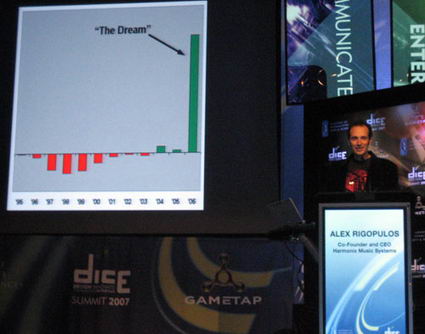
[Image courtesy of Jeff Atwood from Coding Horror]
Success is about a lot of things, but without perseverance none of them matter. Being smart really helps, but it doesn’t guarantee success. Many very brilliant people can’t successfully start companies, and many not so brilliant people have runaway successes. Luck can help, but it can’t stay with you forever. You can only be lucky for so long.
Honestly is there any other one single thing that can help you achieve success as consistently as perseverance? NO! Everything else, luck, money, intelligence, can help, but none of them will be as powerful as perseverance.
Learning to be successful takes time, effort, and energy. It’s the ability to keep on going through thick and thin. It’s the ability to not abandon when most other people would. It’s the ability to learn from your mistakes and continually improve. Or to use my favorite quote from Eddie Cantor “It takes 20 years to make an overnight success.”. I couldn’t agree more.
A great example of overcoming perseverance comes from the company Harmonix, makers of the wildly successful and famous video game Guitar Heroes. It took Harmonix 10 full years of development and improvements to build this series of games and achieve success. The graph at the top of this post really shows you the perseverance the folks at Harmonix had to keep pushing on. Sure they had revenues, but they also had negative profits. It would have been very easy to quit, but they kept on pushing.
If you ask most people today about the Guitar Heroes series, they’ve only learned about it in the last while with the release of Guitar Heroes 2. That’s when it really started to get some traction. And recently with Guitar Heroes 3 and Rock Band going mainstream, just about everyone knows about them. How many of you played, seen, or even heard of the original Guitar Heroes (version 1) game?
As a side note, Harmonix developed Guitar Heroes 2 for RedOctane, but not the latest Guitar Heroes 3 game. Without getting into the details, Harmonix was acquired by MTV in 2006, and as part of its first project it developed the other major competing game to Guitar Heroes 3 called Rock Band (Guitar Heroes 3 was developed for RedOctane by another company). Rock Band of course became a large success. A major part of their success with Rock Band was because of all the knowledge they had acquired over their years learning how to build Guitar Heroes, Dance Dance Revolutions, and so on. In other words, because of their perseverance. Perseverance really pays off!
I’ll give you another great example, my own company LandlordMax. If you look at the graph just above, it’s a 12 month moving average of our sales revenues (with the first 12 months missing to be able to get the first average). As you can see, we had almost no growth in 2005 according to this graph. Although I could’ve sworn we did, it tells me otherwise (a moving average graph acts as a way to smoothen the data points).
In other words, it basically took us two years to really get LandlordMax going. Sure it’s not nearly as long as ten years for Harmonix, but how many of you would keep at it for 2 years before seeing any significant growth? That’s with 3 major version releases (not counting the initial 1.00 release).
Perseverance is the key to success! It took us a while to get the “right” features into LandlordMax, to fully understand what our users really wanted. It took Harmonix many years to get the “right” music software, the “right” polish. Once they understood it though, it didn’t take them very long at all to create another completely new game (Rock Band) and achieve the same success with it. Learning how to succeed takes time and perseverance. It takes commitment and effort.
As the movie Run Fatboy Run asks, what will you do when you hit the “wall”? Will you push through it or give up and go home?
PS: If you haven’t already read it, I recommend reading Jeff’s somewhat related post Living the Dream: Rock Band. It’s about the importance of putting the user’s goals at the forefront of your business. And it’s also the inspiration that initiated this post.
Permalink to this article Discussions (6)
Interview the Pros – Update
As many of you already know, I’m in the process of getting a book published called Interview the Pros: What does it take to create a Successful Blog? which consists of 40 interviews with many prominent bloggers and will be available on Amazon, Barnes & Nobles, and so on. The good news is that I’ve just finished sending the final review/edit of the book to my publisher earlier this week. I’m now in the process of working with them on the book’s cover copy (the wording on the cover, back, inserts). We’re also in the process of working through the illustrations for the cover, and what have you. As far as I understand, this next step could take up to 5 weeks.
The book’s already been assigned it own ISBN, which is pretty cool! It will be available in both hard cover and soft cover, In addition to this I’m in the process of building up a website for the book which should be available for its release. I’d share the link but it’s not yet ready.
All in all things are progressing. It’s not as fast as I’m used to in the blogging and technical world, but I’ve been informed that for a traditionally published book is pretty fast, which is good news.
I’ll keep you posted with updates as they become available.
For those of you who are new to this blog (the readership is growing quite rapidly), the list of people interviewed for the book are:
- Aaron Wall from SEO Book
- Ades Tynyshev from Ades Blog
- Al Carlton from Coolest-Gadgets.com
- Alex Papadimoulis of Worse Than Failure
- Andy Brice of Success Software
- Anita Campbell from Small Business Trends
- Asha Dornfest from Parent Hacks
- Ben Casnocha
- Ben Yoskovitz of Instigator Blog
- Bob Walsh author from 47 Hats
- Dan Lyons from The Secret Diary of Steve Jobs
- Dane Carlson from Dane Carlson’s Business Opportunities Weblog
- David Armano from Logic+Emotion
- David Seah
- Derek Semmler
- Dharmesh Shah from On Startups
- Eric Sink
- Ian Landsman of Userscape
- James and Alex Turnbull from Google Sightseeing
- JD from Get Rich Slowly
- Jeff Atwood of Coding Horror
- Jeff Clavier from Jeff Clavier’s Software Only
- Jennette Fulda from Half of Me
- Jenny from 101 Reasons I Hate Being Fat!
- Jessamyn West of Librarian.net
- Joel Cheesman from Cheezhead
- Jonathan Snook
- Manolo from Manolo’s Shoe Blog
- Neil Patel from Quick Sprout
- Pamela Slim from Escape from Cubicle Nation
- Patrick McKenzie from Micro ISV on a Shoestring
- Penelope Trunk of Brazen Careerist
- Ramit Sethi from I will Teach You to be Rich
- Rob Walling from Software By Rob
- Rohit Bhargava from Influential Marketing Blog
- Seth Godin
- Stephane Grenier of Follow Steph (me)
- Steve Rubel from Micro Persuasion
- Trent Hamm from The Simple Dollar
- Yaro Starak from Entrepreneur’s Journey
Permalink to this article Discussions (3)
Top 16 Podcasts
Recently I purchased myself an iTouch, and I have to say it’s an amazing little device. My only complaint so far is that I purchased the 16Gb rather than the 32Gb (I always seem to be running out of room because of all the podcasts I load up on it). Actually, that’s not really true, I’m finding that iTunes on Windows is another of my complaints, it’s an extreme CPU hog. Just downloading files often brings the CPU usage to 100%. Who knows why…
In any case, here’s my current list of the best podcasts I was able to find:
Marketing
Software Development
- IT Conversations
- Software Engineering Radio
- StackOverFlow
- Java Posse
- IBM developerWorks
- UIE Brain Sparks
Technology and Science
General
Some of these podcasts are obviously better than others, but overall I’ve enjoyed almost every podcasts from every single one of these sources. If I had to pick my favorites, they would be Ted Talks (the speakers at Ted are just amazing – I can’t say enough about these video podcasts), Internet Marketing Insider, StackOverFlow, Software Engineering Radio, and Java Posse. I’d also like to include IT Conversations in this list but it’s still too new to me. And don’t get me wrong, the others are great, these just happen to be the best of the best.
And if I’ve missed your podcast, or if you know of other great podcasts, please don’t hesitate to comment below. I’m always on the lookout for great podcasts, especially video based podcasts (video casts).
Permalink to this article Discussions (0)
Status Update
Normally in the past I’ve posted updates about what we’re doing here at LandlordMax (as well as my other projects) every six months to a year. Well I’m now going to try to increase that frequency to every 2-3 months. I’m doing this because it forces me to look more frequently at our successes and failures in detail. I always do some checks each month, but by forcing myself to post about the more interesting metrics on a regular basis will force me to look deeper into these metrics. Hopefully finding some great nuggets of information along the way.
Firstly, the most exciting and good news is our traffic metrics at LandlordMax. Our traffic, as measured in by unique visitors, has increased by a whopping of 108% in the last 6 months!! That’s our biggest success as it is translating into more sales.
As well our revenue growth is continuing to be very positive, which is great to see. For those of you who are fairly new here, in early April I posted a graph of our sales revenues over the last few years. In that graph there was somewhat of a spike in 2008. I’m glad to report it wasn’t just a one-off spike for January and February, it’s a consistent growth in revenue. May is already looking like another very big month, possibly the biggest yet!
I decided to also push the data further and generate a moving average graph using a 12 month trailing period (which is why the first 12 months are missing from this graph). I have to admit I was surprised with the results, it’s much better than I expected! As you can see below, we’re definitely moving in the right direction. The real estate bust is not hampering our growth, so it’s not all bad news out there. It’s definitely not all doom and gloom for everyone as you can clearly see.
Some other interesting news, FollowSteph is still growing at a very good pace. In the last 6 months the traffic on this blog has grown by 46% which is great. Although I was hoping to more than double it every 6 months, I can’t complain with this growth rate. The good news is that the RSS feed subscription rate has grown much faster than that, it’s pretty doubled in the same amount of time.
As for the book Interview the Pros: What does it take to create a Successful Blog?, it’s still being edited by my publisher. These things take time, which I have to admit is excruiating for me. I like to have things moving, I’m not a big fan of waiting. But the good news is that the book already has it’s own official ISBN number assigned to it. And most of the book’s cover and back copy is ready to go. It’s going to be available in both as a soft and hard cover book. I’ll let you all know as soon as the editing phase is done, which hopefully will be sooner than later. As well I have to finish the website for the book pretty soon, so I can start to do some pre-marketing. I’ll let you all know when the website is available.
As for the ebook I wrote How to Generate Traffic to Your Website it’s done fairly well overall. I have to admit I was hoping for better results, but this topic seems to be saturated with lower quality ebooks. In other words a lot of people are suspicious of all books on this topic because of some bad experiences, so you really have to push hard to make the sale which isn’t really where I want to be (I don’t want to compete with the long spammy sales letters). However what’s been really interested is that ALL the reviews it’s gotten have been favorable! And each time a review came out there was definitely a spike in sales. But between reviews it’s pretty quiet. So I’m looking into what are my options for the future of this ebook…
Otherwise everything else is moving along very well. The biggest item is that we’re always working very hard on releasing the next major version of LandlordMax as soon as possible, which is coming together very nicely. Just extremely busy as usual.
Permalink to this article Discussions (6)
Why You Should Never Publish Anything Late at Night When You're Tired
I broke one of my own golden rules last night, never ever release or publish anything late at night when you’re tired. If you do the odds of making a mistake greatly increase. And unfortunately last night I broke this rule and a mistake did happen. Luckily for me the mistake was minor, but it helped to reinforce what I should have already known.
You see I published my latest blog entry How Much is it Worth to You? after midnight last night. Although I often stay up much later than midnight, I’ve been going to bed earlier in the last while to catch up on some much needed sleep. In any case, the issue is that I was tired and it was late for me that particular night. Normally in these cases I still go ahead and “publish” the article, but I set the “publish time” to be sometime the next day.
I do this because of several reasons, the biggest reason being that I’ll have had some time to rest and be more awake before it gets publicly released. In some cases I’ve had the time to rethink parts of my post and add more information, sometimes adjust the example, and so on. But overall it’s prevented me a few times from making silly and stupid mistakes.
Well last night I went ahead and pushed the publish button, deciding that I’d break my own golden rule just this one time. And this was my mistake!
Some of you might have noticed it, but I think I caught it before most of you did. What happened is that when I wrote the article I initially left the headline blank. I often do this because I couldn’t think of a good headline at the time I wrote the article. In these cases I just continue writing and come back to the headline later.
Last night I forgot to come back later and write my blog post headline. I left it blank. Above the title being blank, it also meant that my RSS feed subject line was blank. No so bad for a starting blog, but as you get bigger it will be noticed by more and more people. Like I said before, this was not a major issue, but it definitely brought the point of my golden rule home. Plus it’s better to fall and learn (or in this case re-learn) from smaller mistakes than from your larger mistakes.
And don’t think this doesn’t happen to large companies releasing major new versions of their software. To give you an example, early on in my programming career, long before I started LandlordMax, at least 10-15 years ago, I worked for a company where a short workday was 12 hours. And that included weekends (this alone has the makings of a DailyWTF written all over it). As you can imagine we were living in a perpetually tired state. Come release time there was even more pressure to work harder and longer hours. And I did, after all this was very early in my career and I didn’t know any better.
Well the obvious happened. Something eventually went wrong one day. Although I can’t remember the details any more, it’s all a big blur, but I do remember one major release that we’d been working particularly hard to get out the door. We’re talking barely enough time to go home to shower and eat at night (or should I say the wee hours of the morning), never mind sleep. Well eventually we made a mistake, and it was a bigger one. On release night, after what we thought was exhaustive coding and testing, we felt like the current release candidate was ready to go. We decided to release it. We were done. Phew. So we performed one last final build to run one last final test round on (remember this is a time before automated tests were mainstream). And we released it. Exhausted we all went home to catch a few hours of sleep.
Unfortunately within a few hours we were all called right back into the office. Our released version had a major bug. I wish I could remember what it was exactly, but I can’t. To be honest I suspect my brain has intentionally forgotten about it. In any case it was broken and customers were complaining. All hell was breaking loose.
Being already tired really didn’t help to resolve this issue quickly. But lady luck was on our side because it was a very simple mistake and we were able to fix it very quickly (I think it was something like the wrong language properties file was being picked up in the wrong build). So simple a mistake that had we released it in a waken state, well even in a just non-exhausted state, it would never have happened. As soon as we re-released it the phones stopped ringing and we were able to finally get some sleep.
Never ever release when you’re tired. But more importantly, had the issue been a complex or hard one to resolve we would have been in a lot of trouble. Having your development team completely exhausted trying to fix a critical and complex bug during a firestorm is an incredibly dumb place to put yourself into. Would you want to have triple heart by-bass surgery performed on you while you were in the middle of a heart attack by a surgeon who had slept only a few hours in the last week and was living completely on caffeine? Especially when there’s no need for it to be like this.
You can’t win every time, but stack the odds in your favor! Be smart about it. Don’t make my mistake. And you can be sure I won’t break this golden rule again, at least not for a very very long time.
Permalink to this article Discussions (5)
How Much is it Worth to You?
Today as I was going through my RSS feeds I came across a very interesting post on I Will Teach You to be Rich by Ramit Sethi, which coincidently is one of the bloggers I interviewed for my upcoming book Interview the Pros: What does it take to create a successful blog?.
Although the title of his post drew me in (Why the lady sitting next to me should pay $2,000 for a computer class), what really caught my attention was:
If you take a $2,000 computer class and it lets you get a job with a $10,000 salary bump, you should do it. No question.
If you buy one book per week, for $20 each, that’s $1,000 per year. If you get one good idea per week, my friend Paul told me, it’s worth it. If you apply that idea, I can’t even guess how much it would be worth.
I especially like the second paragraph. I’m a very strong believer in reading books (and GOOD blogs for that matter – where good means it has value to you). As a personal goal I try to read one book a week, but I suspect it’s closer to one book every 1-3 weeks. In any case, I’ve found that I can average out at least one great idea per book, generally much more. Not all books are equal of course, some books offer incredible value whereas others are pretty much useless. However as an average I find the ROI for books to be very high which is why I continue to buy them. For example today I just bought a new book, albeit a technical one, called GWT in Action: Easy Ajax with the Google Web Toolkit.
Anyways getting back to the topic at hand, as Ramit says:
Of course, the excuses will come. I don’t have that kind of money. (Answer: Save up.) How do I know if the class will get me that better job? I could probably take the same class for $100 somewhere else. All this stuff is free online, anyway.
I couldn’t have said it better. And I especially like Ramit’s last example excuse: “All this stuff is free online”. I absolutely unequivocally agree, you can get information for just about anything online for free, assuming your time is worth nothing. Not only that, the net is full of misinformation, which can cost you much more than free!
But let’s get back to this free thing. How long do you think it will take you to find all the information you want? It definitely will take you a lot longer than reading a book. Above this, will it all be fluid and coherent. That is, will the material flow and make sense or will you be struggling and fighting with the material to make sense of it all because it will come in pieces that you have to combine together, all fragmented from different online sources.
How much is your time worth? $20? $30? I honestly would rather spend the few bucks it takes to get all the material combined and nicely packaged into a book than spend days and weeks just trying to bring it all together, piece out what’s what, what’s right, what’s wrong, what’s obsolete, what’s duplicated, etc. The ROI of a book is generally worth it!
If I compare the amount of effort I spent to get my ebook on how to generate traffic to your website, well I can guarantee you that even if you make minimum wage the ROI will be positive. It took me weeks to months to put it all together, and that’s not counting the time it took for me to become knowledgeable on this topic. I can’t imagine someone starting from scratch.
Or what about my upcoming book on how to blog? I’ve spent over 500 hours just interviewing 40 bloggers and putting it all together in a book. And above that it’s being professionally edited right now. Sure you could probably dig through these bloggers blogs to find most (most, but not all) of the information they gave in their interviews, but how long would it take you?
And that’s the key to success; look for opportunities that will bring you more value than what you paid for them. This includes everything and anything: books, courses, conferences, etc. As Ramit put it himself, they key to success is “if the value exceeds the cost, do it.” It’s as plain and simple as that!
**Update: It recently came to my attention that the original idea for this post came from a lunch time conversation between Paul Singh and Ramit Sethi. If you also want to see Paul’s take on this idea you can find his post titled The Best Way to Spend $20, Today at Results Junkies.
Permalink to this article Discussions (7)
Affiliates – Part 2
In my last post I debated whether or not affiliates are worth it for merchant’s, or in my particular case an ISVs (Independent Software Vendor). I personally believe that they’re worth it, but it takes time and effort to nurture for affiliates to be worthwhile. In any case, I promised I would write a follow-up with more detailed metrics, so here goes.
And for those of you who haven’t read the last post, I concluded with the following tip: If you do decide to go the affiliate route, you’ll find that almost all of your affiliates will fit into two main categories. Those that have 0-1 sales and those that have many sales. To maximize your results from your affiliates I recommend you increase the commissions of your higher performing affiliates, those that prove themselves. This will make them happy and work even harder to get you more customers.
To give you an idea of just how true that is, here’s our sales graph from ShareASale listing our affiliate sales distribution. You’ll find that 86% of our sales went to our Top 10 affiliates as illustrated in the graph below. That’s a whopping majority of the sales!!!
I apologize if the graph isn’t as clear as it can be, but the key thing to note is that the blue signifies the percentage of sales going to the Top 10 affiliates. It obviously dwarfs the rest.
Which made me think, can we get even more detailed metrics? Of course I could look at the raw data, filter it, and then generate my own chart, but luckily ShareASale offers a Bubble Chart of the top affiliates, which you can find below (I have left out the numbers and names of our affiliates for their privacy).
Looking at the above graph, it’s obvious that there are two super affiliates that bring in the majority of affiliate sales! I haven’t looked at the numbers in details, but I suspect they could count for half of all the affiliate sales. Following them there are two medium scale affiliates, and then everyone else. Therefore if we really want to maximize our results from our Affiliate program, we want to work closely with the top 2-4 affiliates. The others almost become noise. Not quite, you can obviously see that there are a number of affiliates getting some sales, but nothing in comparison to the super affiliates.
Which leads me to a bonus and unrelated last chart. I’m mainly posting it because I found it personally very interesting. But before I post it let me give you some context as to why I find it so interesting.
Before you purchase LandlordMax, you can try it for free for 30 days. And then, even after you purchase LandlordMax, you still have 30 days to get a refund if you’re not completely satisfied (for any reason). What does this all mean? Generally our customers have tried it before they decided to buy it, which is great (and I strongly recommend it). In other words they’re already comfortable with the software and know what they’re getting. They’re happy before they bought it. It also means we also rarely need to give out refunds. No company will ever not give out any refunds, but what I’m saying is that our number of refunds is almost non-existent.
That being said, when someone clicks on a link from our affiliates, they have 60 days within which to buy the software for our affiliates to collect their commissions. This gives them time to try the software for 30 days, as well as giving the purchaser time to ask for a refund (to protect us from fraudulent affiliates). Although rare, it balances out everything.
With that in context, below is the graph showing “Return days by gross sale amount”:
Notice anything? The majority of affiliate purchases happen on the same day that they clicked on the affiliate link! But what’s really astounding is that so far we’ve only had one affiliate refund (we actually had two but the second one was because someone accidentally purchased the software twice within 15 minutes). These are people who are buying LandlordMax the same day and not even trying it (sight unseen). This is very different than our internal sales cycle. I wish I could explain this but I just discovered it today when I was looking into the stats for this post. In either case, it’s very interesting and I plan to investigate it some more.
In any case, you now have an idea of what our affiliate sales metrics are like. Hopefully this will give you a better idea of whether it’s worth it or not for your company/website. Just remember that getting those super affiliates does take time, but when you find them they can make it all worth the effort.
Permalink to this article Discussions (6)
Are Affiliates Worth it for Merchants?
The real answer is it depends. Having an affiliate network to sell your product does require a decent amount of work, so if you’re going to do it the biggest tip I can offer is that you use a service such as ShareASales.com (which is what we use). Don’t try to roll out your own (we initial did), it’s not worth it. Going with a service will alleviate a lot of the technical effort and costs. You’ll still have many issues to deal with, ranging approving affiliates, dealing with people trying to scam you, etc., but at least your cost of running it will be drastically reduced. If we hadn’t moved to a service we would have dropped our initial affiliate program. Actually we were in the process of dropping it when I found ShareaSale.com. It just costs too much to maintain in-house.
In any case, an affiliate program can be worth it if executed properly. To give you an idea of what’s possible, since 2005 (so in two and a half years) we’ve sold $9,408.00 worth of licenses of LandlordMax through our affiliates. Although this might not seem like a lot, based on the amount of effort it took to manage the affiliates, the commissions($1,808.10), the amortized cost over all customers to build the software, technical support, etc. we believe we made some profit. In terms of percentage of total sales it only accounts for a small percentage, but it does add up to more than nothing. In other words it’s an extra $7,599.90 ($9,408.00 – $1,808.10) we wouldn’t otherwise have.
The biggest negative issue we encountered was an affiliate who generated a bit more than a dozen sales (not included in the above totals) that resulted in fraudulent credit card purchases. Luckily we were able to spot him pretty quickly, it was fairly obvious what was going on. Although I don’t know for sure what his intentions were, I would guess that he was trying to get paid the commission before the credit cards were returned to us as chargebacks. In any case we were able to quickly cancel all their transactions as well as avoid the chargebacks by being proactive.
That and some affiliates do use more “aggressive” means of getting people to your product. You should be on the lookout for these types of affiliates and try to limit them to what you find acceptable for your company. Remember that if they go a little crazy and spam your product all over the place (or at least more than what you find acceptable), your company will be associated with the spam, and not the affiliate! You need to be vigilant about these affiliates.
Because of all this we now manually inspect every affiliate that applies, and we double check all their purchases. However other than this negative experience it’s been pretty positive overall for us. The thing to remember is that managing your affiliate program does take time, so you need to add this into your cost. That’s above the commissions you pay out. So your average profit margin will be much lower than a regular sale, if any at all.
Where you’ll really benefit from affiliates is in the total lifetime of your customers, assuming you have a good product or service. In other words it might not even be a bad thing if they’re loss leaders, as long as these customers buy from you again (for example future upgrades as in our case).
So to answer the original question, are affiliates worth it from the merchant’s perspective? It depends. The honest truth is that you need to try it out and see what numbers you come up with. That and you need to look at the total lifetime revenue of your customer, not just that initial purchase, otherwise you’ll probably lose out. And expect to spend a decent amount of time managing and monitoring your affiliates.
Quick Tip: If you do decide to go the affiliate route, you’ll find that almost all of your affiliates will fit into two main categories. Those that have 0-1 sales and those that have many sales. To maximize your results from your affiliates I recommend you increase the commissions of your higher performing affiliates, those that prove themselves. This will make them happy and work even harder to get you more customers.
Permalink to this article Discussions (1)
LandlordMax Customer Testimonial
Recently I had a very positive exchange of emails with John Newton, a LandlordMax’er. In one of these exchanges he stated:
“All in all, LandlordMax is my favorite property management software package I have reviewed simply because it is a good mix of functionality, ease of use, and price. You get a great software package for under $150 and the company behind it has great service.”
At which point I asked him for his permission to publish his comment. Rather than just respond yes, he added:
“Hey, you guys are the greatest. I love your customer service. I have now bought the software and am loving every minute of it!”
Thank you John for the glowing feedback. It’s great to hear you’re loving LandlordMax and that’s it really helping you out.
Permalink to this article Discussions (0)
What would it cost to build this site?

Earlier this month there was a thread on Joel Spolsky’s BoS (Business of Software) discussion forum asking What would it cost to build this site. Of course it started innocently enough, with a simple statement:
We recently created a startup on which the website is an integral part. Customers rent our product for a specified time period. When you get right down to it, the required features of the website are no different than what would be required of a car rental web site.
Then came the big question:
My question is, what would a ballpark estimate of the cost be?? Again, the fully functional site would resemble a car rental company such as Hertz.com
This is a completely loaded question!!! There will of course be very large price fluctuations amongst the responses no matter who you ask, these requirements are too broad and open-ended. Sadly however I believe that none of them are near the “real” cost to build this website. I think the highest was around $150k if I remember correctly, with many saying that it could cost as little as a few thousand.
WHAT???
Honestly, to create a car rental service just like Hertz will cost a lot more than $150k. Thinking it will only cost a few thousand is insane. Sure you can say you will outsource it for a few thousand, but I can guarantee you what will come back won’t be what you expect. The price has to be reasonable. If it only cost a few thousand to successfully build this system, than all software, and I mean ALL software, would be outsourced. This isn’t the case. I have no doubt it cost Hertz a lot more.
It’s simple to over simplify how much effort is required to build a software application. So much so that the original poster chimes back in with:
There is just no way this would bet done under $10,000. As I said, the site is about 30 percent of what it needs to do. 5,000 lines of code, couple hundred manhours. The manhours are high as we constantly were changing things. But things are a bit more static now and it would be easier to write a detailed spec for he the remaining requirements.
Some additional “Major” components:
Security/Logins. Certain Admin people will be able to do everything. Lower levels will have limited capabilities.
Audit trails for all changes by personnel. If someone changes a record or changes a reservation it needs to be logged.
RealTime Inventory Management. If inventory is low at certain times then site needs to prevent reservations from taking place. Also ensure inventory was the right stuff when it is returned.
Again, think rental car website. I was thinking more along the lines of $50K to $150K.
Just reading these specs I can very quickly see this site greatly increasing in complexity and scope as the details are filled in. Never mind that the scale of users or data hasn’t even been taken into consideration. In any case, I personally don’t believe that this is possible for $150k, it way too optimistic. The vast majority of the posters are thinking of the simplest solution, but I can already see from this slightly “enhanced” description that it’s not going to be the simplest solution. The requirements are only going to grow, and grow fast they will, otherwise known as scope creep in the software industry.
But alas not everyone agrees. Further down someone comments:
I dunno ’bout 100K. My devs do quite a bit of these sites in the $20K to $50K range … but we don’t have a tight enough spec yet do we? Could (maybe) hit the 6 figures once the full spec is known. The folks suggesting a couple of grand, though, they’re smokin’ crack.
Even though this person agrees that building it for a few thousand is too cheap, he still suggests a price that’s way too low. I have no doubt it cost Hertz much much more. I agree that a simple car rental system could be built for around $100k, but that’s a SIMPLE AND MINIMALISTIC car rental system and NOT a replication of a full blown car system as is suggested. Audit trails, realtime inventory management linked to reservation system, reservation system, scheduling, etc. And these are just listed as “SOME” additional “MAJOR” components. This is not a simplistic system. It will grow in scale very quickly. Just look at some of the questions and issues that came up when we decided to add “simple” email to LandlordMax. And that’s just simple email!
So what’s going to happen. The person will eventually settle on someone who says they can build it for around what they think is reasonable. The delivered system either will not work at all, it will be severely delayed, or it will be severeled scaled back in terms of features and modules. Not only that, but assuming something is delivered, I doubt that it could scale up in terms of traffic load. At least not at that price, scalability takes skill and experience, not to mention effort.
And I haven’t even talked about bug fixing! What do you think happens when a software project can’t possibly be delivered within it’s deadline? Depending on how ethical your company, they might just deliver it in an unstable state where “fixes” will be added to the cost of the project after delivery. For example some software consulting firms are know to do this, deliver a project “on time” only to have the “support” costs be higher than the initial project costs. This way they can be the lowest bidder but yet still charge the real cost of implementing the software. And don’t think it doesn’t happen, it’s much more prevalent than you might think.
Software takes time and effort to build. It’s not that simple yet people continue to grossly underestimate the cost of development and wonder why things it’s late, why it’s buggy, why it just doesn’t work. The answer is simple, extremely simple, many many software projects grossly underestimate the amount of effort required. Although many people want to believe it’s more complex than that, it’s really just as plain and simple as that.
Permalink to this article Discussions (2)
| « PREVIOUS PAGE | NEXT PAGE » |

